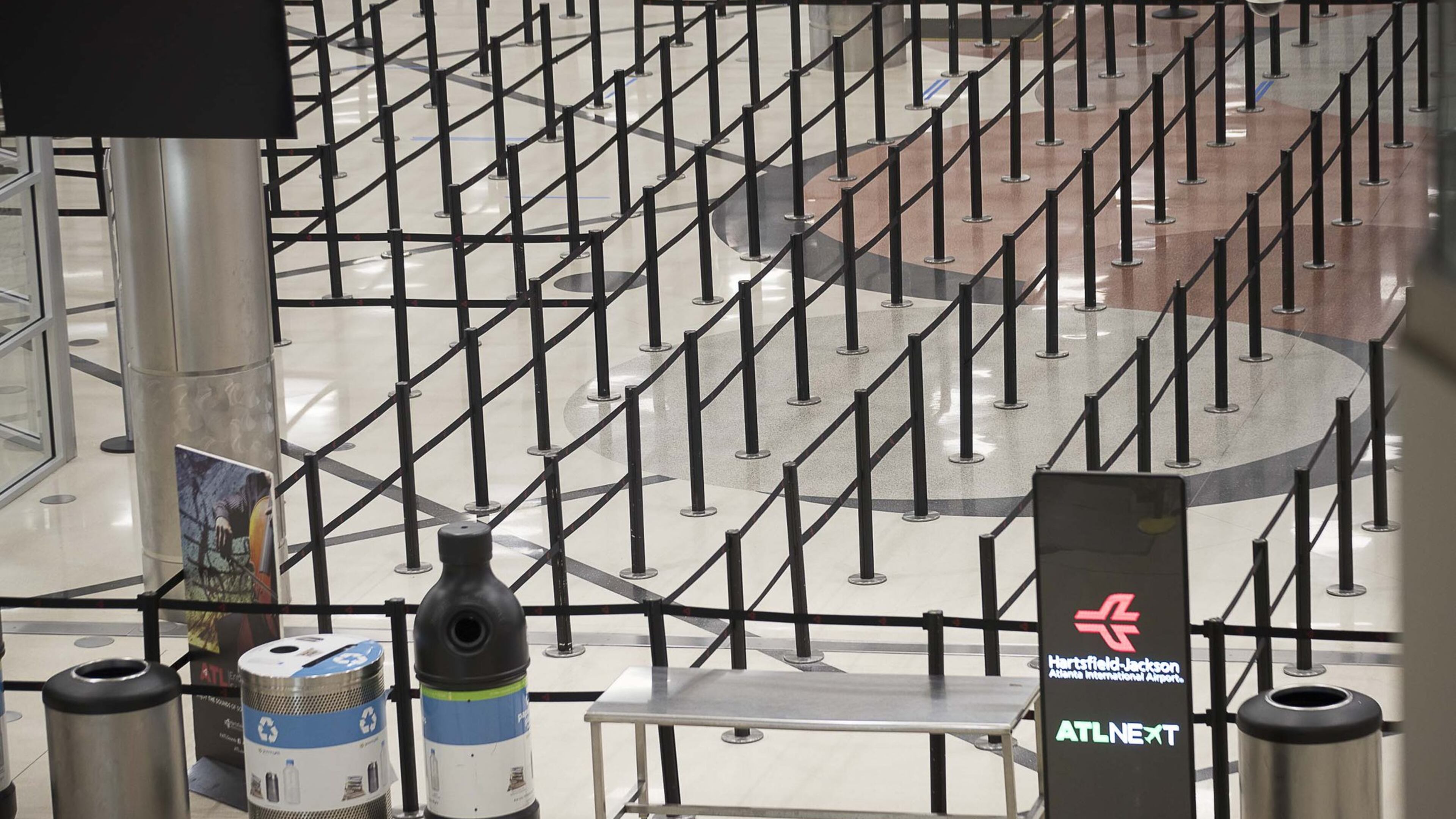Delta Air Lines posts $534 million 1Q loss; sees 2Q revenue down 90%

Delta Air Lines lost $534 million in the first quarter of 2020 and is seeing passenger counts down 95% due to the coronavirus pandemic.
The Atlanta-based airline said it expects revenue to plummet 90% in the second quarter, far worse than the 18% drop in the first three months of the year.
After performing strongly in January and February, Delta's business plunged in March amid travel restrictions, border closures and stay-at-home orders. It was the first quarterly loss in more than five years.
"These are truly unprecedented times for all of us, including the airline industry," Delta CEO Ed Bastian said in a written statement.
“We believe that it could take up to three years before we see a sustainable recovery,” he said during an analyst call Wednesday. He told employees in a memo Wednesday that “Delta will be a smaller airline for some time.”
Bastian said the company plans to offer early retirements to employees, but it’s too early to determine if the company will need layoffs after Sept. 30, when federal aid restrictions barring involuntary furloughs end.
The company embarked on an aggressive cost-cutting program in recent weeks. Expenses have declined 50% through lower fuel costs, reduced payroll, pay cuts, parking jets, retiring its MD-88 aircraft in July and closing airport concourses. The company has had 37,000 of its 90,000 employees agree to take voluntary unpaid leave.
Bastian also told employees to not expect a profit sharing payout for 2020 results. The payout for 2019 amounted to an extra two months of pay. Many Delta ground workers and merit employees at the Atlanta headquarters have already had hours cut, reducing their pay by 25%.
Delta said it is cutting flights 85%, include slashing domestic flights 80% and international flights 90% for the April to June period.
The airline also owns an oil refinery in Pennsylvania and expects it to reduce production and lose money in the second quarter.
Bastian said Delta’s increased cleaning procedures will continue after the virus crisis ends, and said the airline is working with medical advisers to make changes to facilitate travel.
Delta also has been shoring up its finances. It said it has already received $2.7 billion of $5.4 billion in federal relief funding from the Coronavirus Aid, Relief and Economic Security Act. It plans to apply for another $4.6 billion in federal loans offered to airlines if other financing is not available, but has not yet decided whether it will accept the loans.
The airline has raised $5.4 billion since early March, including a $3 billion loan, $1.2 billion from selling aircraft and leasing them back, $1.1 billion in loans secured by airplanes, and another $150 million from mortgaging aircraft. It also has drawn down $3 billion from existing credit lines and extended payment terms with airports, vendors and lessors.
On Wednesday evening, Delta announced a round of financing including $1.5 billion in senior secured notes and a $1.5 billion loan.
“The decade of work we put into the balance sheet to lower debt and build unencumbered assets has been critical to our success in raising capital,” said Delta Chief Financial Officer Paul Jacobson in a written statement.
The company was burning through $100 million of its cash reserves a day at the end of March, and aims to reduce that burn rate to $50 million a day by the end of June. With the actions it is taking, it plans to have about $10 billion in liquidity by the end of the June quarter.
The airline is planning for a “modest demand recovery” starting in the third quarter of the year, but the timing and pace of the recovery is uncertain, Delta said.



